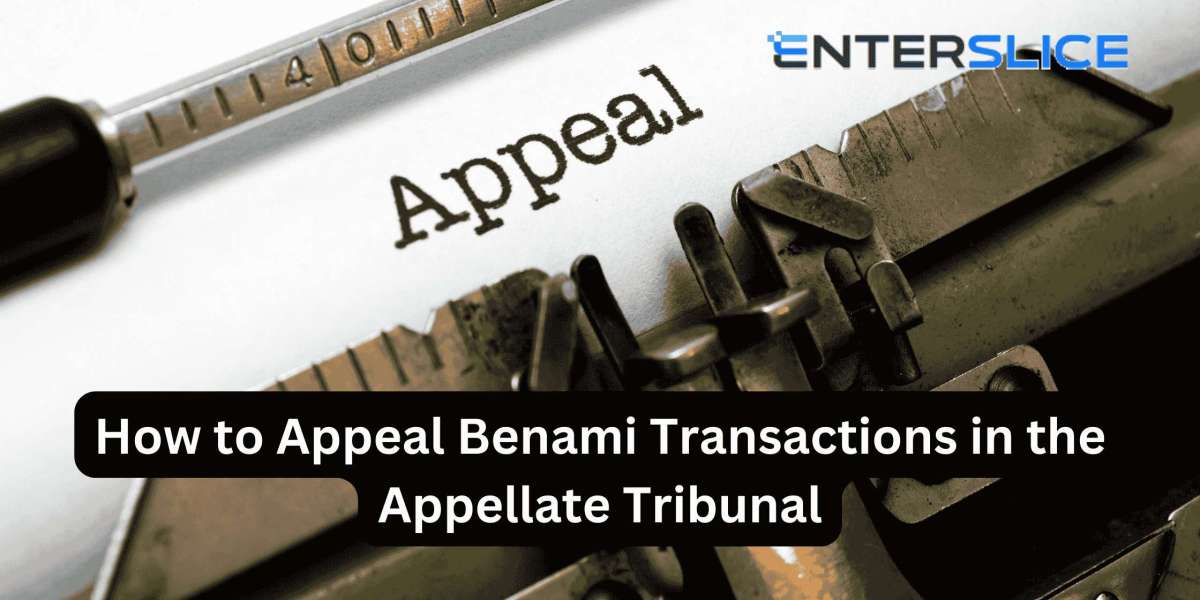Benami transactions, which involve property or assets being held in someone else's name for the benefit of another, have been a significant concern for the Indian government in recent years. To curb such illegal practices, the government introduced the Prohibition of Benami Transactions Act, 1988 , and its subsequent amendments, making it a criminal offense. If you are facing allegations related to Benami transactions, it is important to understand how to appeal these decisions effectively in the Appellate Tribunal. In this blog, we will guide you through the process of appealing Benami transactions in the Appellate Tribunal, the role of the tribunal, and other crucial aspects you need to consider.
Understanding Benami Transactions and the Appellate Tribunal
Before delving into the process of appealing Benami transactions, let's briefly discuss what constitutes a Benami transaction. A Benami transaction involves a transaction where property is transferred to one person, but the benefit is for another individual. The person whose name appears on the property deed is called the "benamidar," while the actual owner is the "beneficial owner." The Prohibition of Benami Transactions Act (PBTA) was designed to prevent such fraudulent practices and combat black money, tax evasion, and corruption.
When an individual or entity is accused of engaging in Benami transactions, the property or asset in question may be seized. The authorities then initiate proceedings to declare the transaction as a Benami transaction and confiscate the property. This process can be quite intricate and can result in significant consequences for the accused. In such cases, it is essential to seek legal representation and file an appeal before the Appellate Tribunal to contest these actions.
The Role of the Appellate Tribunal in Benami Transactions
The Appellate Tribunal for Benami Transactions is a quasi-judicial body established to hear appeals against the orders passed by the Initiating Officer or the Adjudicating Authority under the Prohibition of Benami Transactions Act. The tribunal is responsible for reviewing the evidence, legal arguments, and ensuring that justice is served in the cases of Benami transactions.
The Appellate Tribunal for Benami Transactions provides an opportunity for the accused to contest the decision made by the lower authorities. It serves as a forum where the appellant can present their case, challenge the confiscation of their property, and seek a fair judgment.
Additionally, there is the Appellate Tribunal for Forfeited Property , which deals with appeals related to the forfeiture of properties under various laws, including the Prevention of Money Laundering Act (PMLA) and the Benami Transactions Act. While the two tribunals serve different purposes, they share the common goal of ensuring that individuals facing property forfeiture or confiscation have access to justice.
The Process of Appealing Benami Transactions in the Appellate Tribunal
Filing an appeal before the Appellate Tribunal for Benami Transactions involves a series of steps. Here's a breakdown of the process:
1. Understand the Grounds for Appeal
Before filing an appeal, it is essential to understand the grounds on which you can challenge the decision. In Benami transaction cases, an individual can appeal on various grounds, such as:
- Lack of sufficient evidence to prove that the transaction was indeed a Benami transaction.
- Violation of procedural fairness during the investigation or adjudication process.
- Incorrect application of the Prohibition of Benami Transactions Act.
- Failure to establish that the property in question was part of a Benami transaction.
The appeal process can be more straightforward if you can identify clear legal grounds for contesting the decision.
2. Consult a Legal Expert
To navigate the complex process of appealing Benami transactions, it is crucial to seek the advice and assistance of a qualified legal professional. A skilled lawyer specializing in Benami transactions can help assess the merits of your case, prepare necessary documentation, and ensure that your appeal is submitted in compliance with the relevant legal provisions. They will also assist in gathering and presenting the evidence required to support your claim.
3. File the Appeal with the Appellate Tribunal
Once you have consulted a legal expert, the next step is to file an appeal before the Appellate Tribunal for Benami Transactions. The appeal must be submitted within a specific time frame from the date of the order or action being contested. Typically, the period for filing an appeal is 45 days from the date of the order. Ensure that your appeal is filed within this time limit to avoid any legal complications.
The appeal must be filed in the prescribed format and include all relevant details, such as the nature of the transaction, evidence, and legal arguments. You will also need to submit copies of documents such as the original order, notices, and any supporting materials .
4. Preliminary Hearing and Examination of Evidence
After the appeal is filed, the Appellate Tribunal will schedule a preliminary hearing. During this stage, the tribunal will examine the details of the case, the grounds for appeal, and the evidence provided by both parties. The tribunal may request further documentation or clarification before proceeding to the next stage.
If the tribunal finds merit in the appeal, it will proceed with a more detailed examination of the evidence, and both the appellant and the respondent will have the opportunity to present their arguments.
5. Final Hearing and Decision
The final hearing is where both parties present their arguments in full, and the tribunal reviews the evidence, legal points, and witnesses involved in the case. After carefully considering all aspects, the Appellate Tribunal will pass its judgment. The tribunal can either uphold the lower authority's decision or modify or set aside the order based on the merits of the appeal.
It's important to note that the tribunal's decision is final, and there is no further appeal unless there is a significant legal or constitutional issue.
Why You Need a Lawyer for Appealing Benami Transactions
Given the complexity of Benami transactions, it is strongly advised to engage a lawyer who specializes in this area of law. A qualified lawyer can help you:
- Understand the legal intricacies of the Prohibition of Benami Transactions Act.
- Build a strong defense by analyzing evidence and identifying weaknesses in the opposing case.
- Represent you effectively during hearings before the Appellate Tribunal.
- Ensure that all procedural requirements are met and deadlines are adhered to.
An experienced lawyer will ensure that your appeal is handled efficiently, increasing the chances of a favorable outcome.
Conclusion
Appealing a Benami transaction case before the Appellate Tribunal is a critical step for individuals accused of engaging in fraudulent property dealings. With the proper legal counsel and a thorough understanding of the appeal process, you can contest the charges and protect your property rights. Whether dealing With the Appellate Tribunal for Benami Transactions or the Appellate Tribunal for Forfeited Property, the expertise of a skilled lawyer is essential to navigate the complexities of the legal system and secure justice.
FAQs
1. What is the role of the Appellate Tribunal for Benami Transactions?
The Appellate Tribunal for Benami Transactions reviews and hears appeals against orders passed under the Prohibition of Benami Transactions Act, providing a forum for challenging the confiscation of property in Benami cases.
2. How long do I have to file an appeal in a Benami transaction case?
You must file an appeal within 45 days from the date of the order or action being contested. It is important to adhere to this timeline to ensure your appeal is considered.
3. Can the Appellate Tribunal for Benami Transactions overturn the confiscation of property?
Yes, the Appellate Tribunal can overturn or modify the confiscation order if it finds that the transaction was not a Benami transaction or if there were procedural or legal errors in the investigation or adjudication process.



